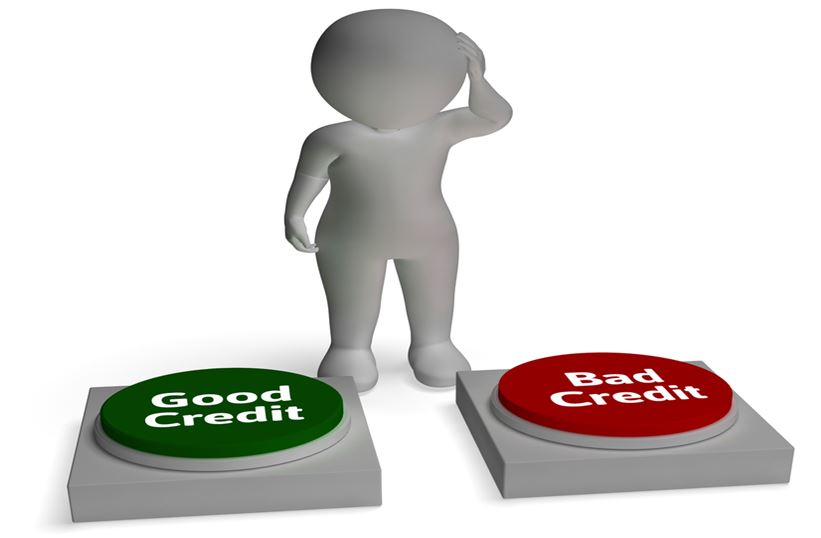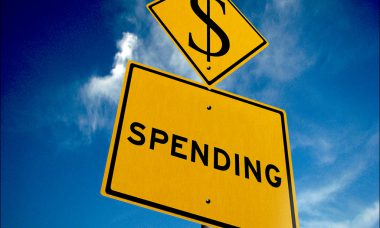
by Ajay oberoi | Credit Counseling, Credit Repair, Debt Management
When you are starting a business, especially if it’s your first entrepreneurial venture, you have many emotions attached to it. You are excited. You are hopeful and yet doubtful. You are almost overwhelmed. This is all because, behind all those emotions, there is one worry that keeps you on your feet – how to fund your business. You have the vision. You have the goal. You have the enthusiasm it will take to run that business. However, what you are short on is cash to run that business. Young entrepreneurs are often faced with this dilemma when starting their first business and maybe this is why many of them bail out on the journey before it has even begun.
You do not necessarily have to have a drawer full of cash to start your own business. You can go to venture capitalists to invest in your business. You can pitch your idea to someone who has the money, time, or resources to put in, or you can choose to apply for a loan to start your small business. Getting a loan to start up a business when you are fresh in the market with no background or history to prove your credibility might turn out to be a daunting experience. You might be focused on all your dreams, visions, and aspirations regarding your business, but the lenders would only care about you having a secure way to pay them back.
However, we are listing down the basics you should check off on your list before applying for a small business loan.
- Before you go to a lender to ask for a loan, you need to have a strong business plan to back up your business claims. It should include all your future budgets, prospected sales, and all the expenses you will have to incur. You must also include all your revenue resources, as well as your suppliers and customers. All this must be laid down clearly in the form of a solid business plan, so your lender will be convinced that you are diligent about your plans.
- You cannot expect the bank to give out a full-fledged loan to you. They sometimes do, but many times the bank would want you to contribute at least 15% – 20% of what you are borrowing from them. It is possible that you will have already saved up some amount before going to the bank. Other than that, have any collateral ready to put up against the loan because it is a new business, an uncharted territory – the bank needs this security.
- Get all your documents ready before going to the bank. Your credit receipts, your income statements, your tax receipts, all the future projections, everything that can be legally required by the bank. Call them up and inquire beforehand what they will be required, and then take that along when you go to meet them.
- The bank will need to see something official here. You need to get your business registered and obtain all the permits and licenses that you will need to operate your business activities. The bank will verify them and ask you to fill in credit forms. After that, you will have to wait until the lender makes their decision.

by Ajay oberoi | Consumer Proposal, Credit Counseling, Credit Repair, Debt Management
Debt is the money borrowed with the intention of repaying with interest. When you can’t pay your debt, you can be sure to be in trouble in many cases. Debt management is, therefore, very necessary. Basic finance handling strategies can help you take better care of your money and expenses for a lifetime.
If you have accumulated debt over time, you will need debt counseling to free yourself from the financial trouble you are in. Following are some of the things to look out for that suggest that you have an accumulated debt:
- You have little to no monthly savings.
- You pay for food and gas and other basic necessities using a credit card because you are left with very little money after paying your bill.
- You pay for a credit card using the cash advance you get from another.
- You get a lot of calls from lenders.
- You fear that you won’t be able to make the minimum required monthly payments on your debt.
What is a Debt to Income Ratio?
Debt to Income (DTI) Ratio is a number calculated by dividing your monthly payments on the debt by your monthly income. You can assess your debt situation by calculating the debt to income ratio. When you are looking to get more debt, debt to income ratio is basically what lenders will use to assess your ability to repay the money that you are borrowing and manage repayments every month.
How Can You Calculate Your Debt To Income Ratio?
The calculation of the debt to income ratio is pretty simple and can be completed in three steps.
Step 1: Calculate the total minimum monthly payments on your debts
While figuring out the total amount you need to pay each month on your debts, take account of all your recurring debts, such as:
- Mortgage or rent
- Home equity loan payments
- Auto loans
- Student loans
- Furniture loans
- Minimum payments on credit cards
- Child support payments or alimony
- Any other debt
Exclude your basic expenses like gas, food, and utilities from the list.
Step 2: Calculate the total monthly income of your household
At this step, you simply have to add up all the money you receive each month. The money may include:
- Gross income (excluding taxes and deductions)
- Alimony
- Child support
- Bonuses or overtime
- Other income
Step 3: Finally, calculate your DTI ratio
Debt to income ratio can finally be calculated by dividing the total amount of monthly payments on your debts with your gross monthly household income and expressing it as a percentage.
For example, if the total monthly debt payments are $1800 and the monthly income is $3900, your DTI ratio will be 1800 divided by 3900, which is 0.46 or 46%.
How much is a healthy DTI ratio?
A debt to income ratio of 36% or less is considered healthy, meaning you can easily settle your monthly debts. However, you should avoid acquiring more debt.
If that number exceeds 43%, you should consider yourself in trouble. And you must seek professional help if your debt to income ratio is more than 50%. Legal financial advisors can help you come out of that financial crisis.

by admin | Bankruptcy, Consumer Proposal, Credit Counseling, Credit Repair
Credit card companies and banks look at your credit score while making the decision to lend you money. Your credit score reflects your ability to return credits. It is a number that depicts the likelihood of you repaying money without struggling.
Lenders check your credit history in order to calculate your credit score in Canada. If your credit score is low, they will see this as a risk for lending you money. Different companies have different criteria to assess the level of risk by looking at your credit score.
There are many things that can damage your credit score in Canada, such as delayed payments of bills, applications for a large number of credit cards, etc.
In case of a low credit score, you should first check the information available in your credit report. That information must be correct. If not, contact the responsible authorities. If the information is correct, the next thing you should be doing is thoroughly and carefully reading the report to assess what factors are causing a decrease in your credit score and how you can improve them.
Here are a few tips that can help you improve your credit score in Canada.
Pay your bills on time
You should always be careful about the time you take to pay your bills. Delayed payments of bills can negatively influence your credit score in Canada. Although your credit report does not have records of the payments of your utility bills such as phone, electricity, and cable, there are some mobile phone companies that may inform the credit-reporting agencies about your late payments, which could negatively affect your credit score.
Clear your debts quickly
You should be looking to pay off your debts as soon as possible. Prolonged and accumulated debts have a bad influence on your credit score in Canada.
Be watchful of your credit card limit
Avoid going overboard with your credit card expenses. Do not cross the credit limit on a credit card, no matter what. Your balance should always be well below the limit of your credit card. Higher balance has more chance of affecting your credit score in Canada.
Prioritize the payments you have to make
Canadian credit reports do not generally include mortgage payments, although they are very important. So, it’s smart if you prioritize clearing your credit card, lease, and loan payments first and on time. This will help you maintain a good credit score in Canada.
Limit your credit applications
You should be careful about the number of applications you make. You must avoid making too many credit applications. Too much inquiry from the potential lenders about your credit can negatively affect your credit score in Canada. However, the credit score is not affected if you have queries regarding your own credit report.
Have a credit history
One of the reasons for one’s low credit score in Canada is the absence of credit history. Make sure that you have a proper record of the debt you owed and the payments you made back. Credit history can be built using a credit card.
Maintaining a good credit score is important and has its benefits. By implementing the above-mentioned tips, you can ensure a better credit score in Canada.

by admin | Bankruptcy, Consumer Proposal, Credit Counseling, Credit Repair
Credit world is a risky world. You need to be careful with your moves, as they are all recorded and can be used against you when necessary. Your bad credit habits and credit mistakes become a huge problem, if not addressed at the right time.
If you are new to the credit system or simply do not have the habit of maintaining your cash wisely, it can be an unfavorable situation for you. Is it never too late to learn? No, not in the credit world! The sooner you learn what credit mistakes you need to avoid, the sooner you will arrive at the safe side of the shore.
Not organizing your expenses and bills
As we said, everything is recorded and reported in the credit world. Your credit history matters the most, and you don’t want anything to stain it. However, if you are not habitual of being on time, you will probably end up with a bad record.
Make sure that you pay all your bills on time and separate your expenses so nothing becomes an obstacle in your next payment. There are many services available online that allow you to arrange your bills and expenses accordingly, with timers and calendars and calculate the amount for every payment. Use them and do not make the mistake of being late. Time is money here – literally!
Being ignorant to the interest charges and rates
It is not wise to not be aware of how much interest you are being charged on every transaction you make and at what rate. Whenever you go for getting a credit card, you must make sure the rates you are being charged, so you can compare it with the other options you have. In addition, it also helps when you are taking a loan. You would not want to be stuck in a loan that charges more interest rate than the other option you could have chosen.
Keep your credit limit down
It is like not being given enough money in hand, just so you will not spend it all at once. What happens is, when you know you have a greater credit limit, you are tempted to make more purchases, and that too recklessly, with a hope that you will somehow deal with it later. Do not do that. Do not fall into the trap of credit card companies, which lure you in by offering higher credit limit.
Giving your credit card to someone else to use
Trusting someone with your credit card is actually a stupid and risky thing do. When you lend your credit card to someone to use, they will make purchases that you will not have any control over. They might not be aware of the interest charges and the rates that comes with each type of transaction. All of this combined will become a problem for you, and if they make any purchase that are illegal, it is you who will have to bear the consequences.

by Ajay oberoi | Bankruptcy, Consumer Proposal, Credit Counseling, Credit Repair, Debt Management
Getting up after you have fallen is relatively easy than getting back up after you have gone bankrupt. It is the accumulation of all your bad credit habits and mismanagement over the time that has finally come alive to eat you up – and it did. The only way out is to file for bankruptcy, which is not an easy way out. However, it is not a difficult situation to stay at, only if you understand the process and have enough patience to let it all pass. It may seem overwhelming and daunting to re-establish your credit profile all over again, to attain a good credit rating and to regain your lost confidence.
If you know how to see the wisdom behind all the happenings, you would see bankruptcy as a fresh start, a second chance to avoid repeating the same mistakes and to prove yourself in front of the credit world. Your second chance can be very rewarding if you plan and strategist what your next step would be. You do not want to go wrong now. Which is why there are 3 steps that you need to take after filing bankruptcy.
Stop letting your mistakes haunt you
This is the first and the most important step before you go any further. You cannot allow your mistakes, even blunders, to keep haunting you and mocking you back. It will only eat away your confidence and you will feel stuck in the place you have landed. It clouds the way ahead and does not let you see the opportunities that you seize. The right attitude here will as your armor. You need it.
A lifestyle change
The next step is obvious; you cannot keep living the way you did before. Your lifestyle must change to accommodate your current financial situation, a situation that will take time to get better. Cut down your unnecessary expenses. Identify your necessities and essential expenditures. Cut down on luxuries to save money in order to pay off your debts. If you have filed for chapter 13 bankruptcy, you will have to do this at all costs. The authorities will ask you to reorganize your expenses, and until you have paid all of your debt off, it will stay this way. If you have filed for chapter 7, then you will be asked to use your money carefully, No credit will be given to you at any circumstance until your case has been discharged.
Reestablish your credit rating
Once your case has been discharged, the next step is to build your credit profile. It is a misconception that you cannot get any credit, once you have gotten the word “bankrupt” on your credit report. What you need to do to improve your credit report. For this, start paying all your bills on time. If you have a house, then do not miss out on any of the mortgage payments.
After that, get a secured credit card. It is not as same as the regular credit cards, but it is the stepping-stone you need to cross. It allows you to deposit a certain amount and that amount becomes your limit. They will see how you are repaying your loans, and according to that, will up your limit whenever they feel you are finally learning from your mistakes.

by admin | Bankruptcy, Consumer Proposal, Credit Counseling, Uncategorized
Being in debt is the last thing that anyone ever wants. Somehow it’s something all of us end up being in one way or another. The economy is just not that good and no matter how hard we work to make ends meet, sometimes it is just not enough. Inevitably have to rely on money granting genies.
However, there comes a time when we all think of paying it off and starting fresh with no burden on our shoulders. We make plans and lists of things we would not do in order to pay back the amounts we owe so we can finally move forward.
Just to make the process easier, here are the three basic and easy ways presented which you can work with to lessen the burden from your hard-working shoulders.
Cut Down The Expenses – Temporarily
The first instinct that we feel when we are in such a situation, Is to cut back on expenses in order to save more. And that should be the first step. You cannot start saving money to pay off your loans by cutting down impulse buying decisions. You do not have to put a hold on every expense but only those without which you can still go about your day, for example eating out, online shopping, ordering late-night food, or buying that green scarf. Of course, this will only be for the time being, until you save enough and pay off at least some significant amount of your loans.
Get A Side Job
If you are working a shift in the day and have enough time at hand to do some extra work, it is always a good idea to take on some part-time jobs to get in that extra cash. You can freelance on the internet for writing companies, for digital advertising companies, or simply take neighbors’ dogs out for a walk every morning. This will take away the extra pressure off you that comes with trying to live on a budget. This way you will have more to save and a little extra to spend on yourself.
Take Care Of The Small Loans First
When in debt, we are tempted to pay off the larger ones first. However, that often leads to the accumulation of many small loans, which ultimately become huge. Therefore, it would be wise to list down all your loans. Separate big and small and begin with paying off the small ones until you are done with them, then move on to the bigger ones. This will not only make it easier to focus on paying off larger debts, but it will also allow you to create a comprehensive strategy with complete peace of mind. Organizing commotions and responsibilities always help.









